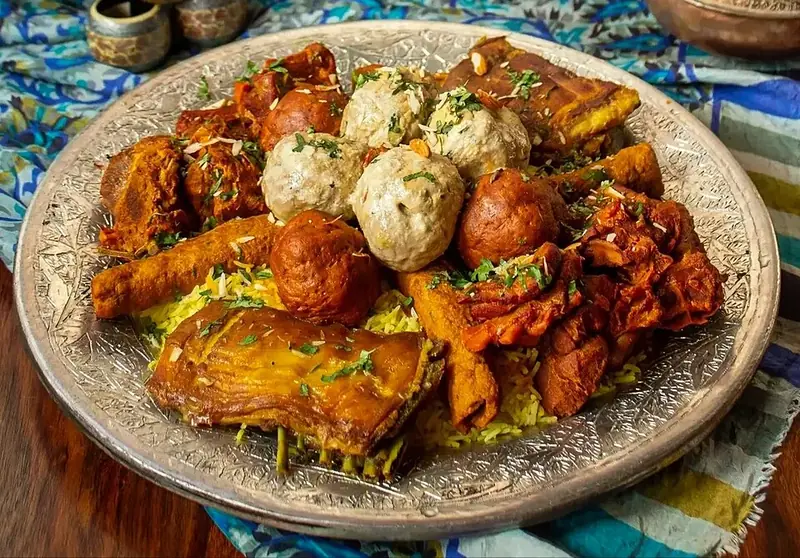Kashmiri Weddings: Where Chaos Meets Charm
From the waazwan feasts to the endless rituals, Kashmiri weddings are not just events — they’re festivals of love, laughter, and logistics.

Kashmiri Weddings: Where Chaos Meets Charm
If you’ve ever attended a Kashmiri wedding, you know it’s not just a ceremony — it’s an entire season. A grand mix of tradition, emotion, food, and that one cousin who somehow never runs out of confetti.
Long before the bride and groom even meet on stage, the air around the family homes starts buzzing. There’s shopping, there’s gossip, and there’s that eternal question — “Kitne log bulaye?” (How many guests are we inviting?).
Spoiler: the answer is always “Bas thode aur”, and that’s how a 200-person wedding becomes a 600-person festival.
Relatives start pouring in days before, kitchens go into overdrive, and someone is always arguing about whether the kangris should be refilled or not. It’s chaos, yes — but it’s the kind of chaos you secretly love.
A Kashmiri wedding is a delicate blend of faith and festivity.
There’s Mehraz Saal, the groom’s dinner before the wedding, and Manzimyoor, the matchmaker who started it all (and now walks around proudly like a general after victory).
There’s Nikah, beautifully recited by the Qazi, binding two souls in sacred vows.
And then there’s the rouf, the traditional dance that somehow ends with the uncles trying their best to join in — and instantly regretting it. 😄
Every ritual feels like poetry passed down generations — simple, sacred, and soaked in love.

From gushtaba (the ‘king of dishes’) to rista, tabak maaz, rogan josh, and that last scoop of firni you swear you don’t have space for — it’s a journey. A delicious, heavy, unforgettable journey.
And yet, somehow, everyone eats again at dinner. Because logic takes a day off at Kashmiri weddings.
The bride, radiant in her pheran and gold dejhoor, sits with calm dignity — half-nervous, half-exhausted. The groom, equally nervous, tries to look confident while managing relatives, rituals, and photographers who believe every blink is a crime.
There’s laughter, tears, and the occasional chaos over who misplaced the nikkah nama. But through it all, there’s love — real, warm, and quietly rooted.
When the rukhsati moment comes — that emotional goodbye — even the strongest uncles suddenly find something in their eyes. The bride leaves her home, and the whole courtyard falls silent except for whispered prayers and the sound of a car starting under a Chinar tree.
Back home, the family sits quietly, sipping noon chai, surrounded by half-empty boxes of sweets and a house that feels too quiet. That’s the thing about Kashmiri weddings — they’re so full of life that when they end, silence feels strange.
Kashmiri weddings aren’t just about rituals or feasts.
They’re about the chaos that turns into laughter, the food that brings people together, and the moments that turn into memories you’ll talk about for decades.
In Kashmir, marriage isn’t a day — it’s a story.
And everyone you love is part of it.